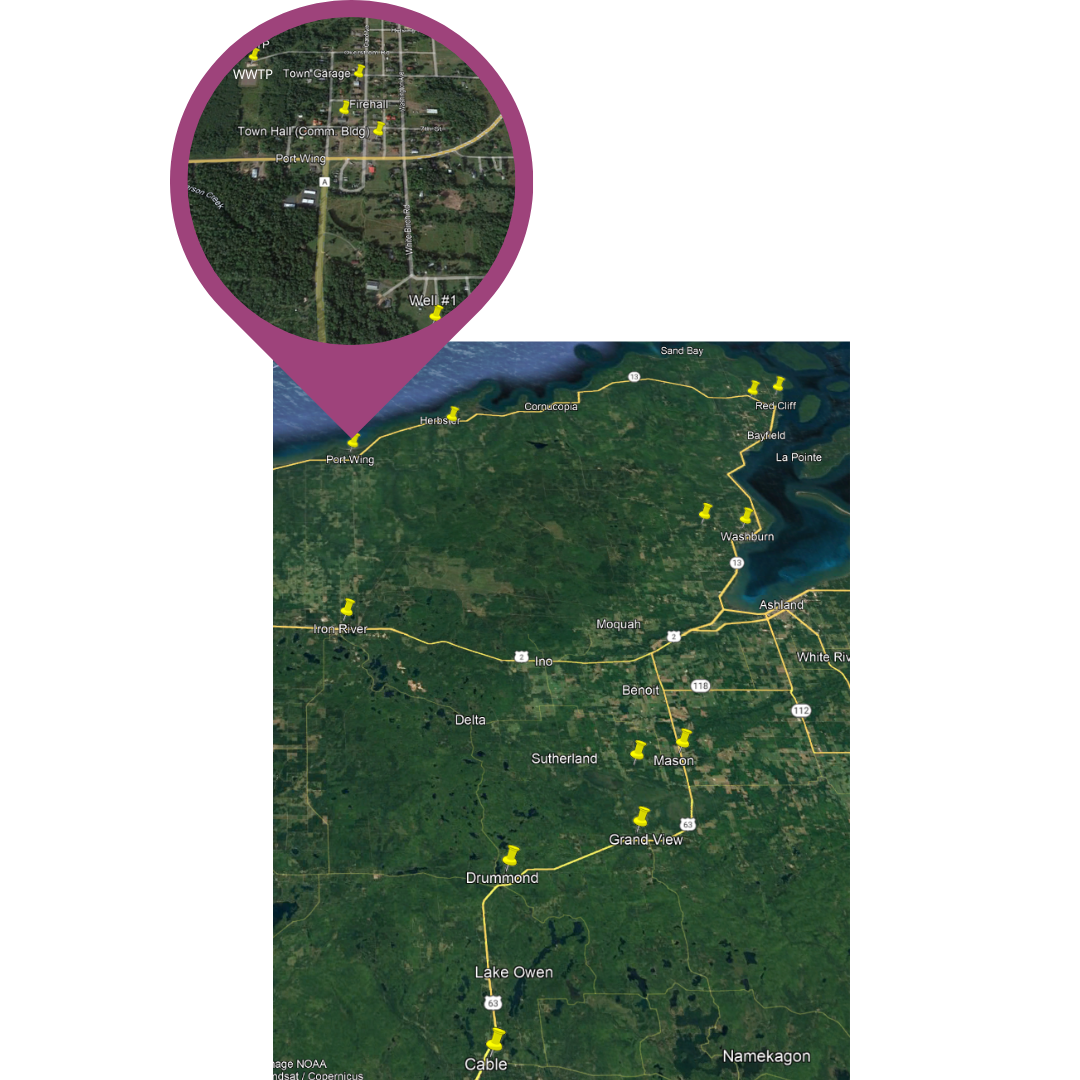muGrid Analytics Selected by U.S. Department of Energy for Rural Clean Energy Demonstrations in partnership with the State of Wisconsin
Collaborative partnerships between municipality, Tribal government, and industry will result in resiliency, carbon reduction, and economic benefits in rural Wisconsin communities.
muGrid Analytics will serve as Lead Program Manager for the Wisconsin Office of Sustainability and Clean Energy’s (OSCE) Resilience and Prosperity in Rural Northern Wisconsin program, which has been selected for award negotiation for the Energy Improvement in Rural or Remote Areas Funding Opportunity provided by the U.S. Department of Energy. The program is one of 17 projects selected for award negotiations across 20 states and 30 tribal nations. According to Energy Secretary Jennifer Granholm, 12 of the projects selected are on tribal lands.
“Investing in renewable energy and creating clean energy jobs in rural areas sets us up for the future, and getting recognition from our federal partners shows we’re on the right track,” said Wisconsin Gov. Tony Evers.
”We have a great team of experts collaborating on this effort, and I’m excited that we’re working together to bring clean energy access to parts of our state that need it most.”
Supporting clean energy access and resiliency in 28 rural communities, the Resilience and Prosperity in Rural Northern Wisconsin program employes a variety of energy technologies, or Distributed Energy Resources (DER.) Microgrids (solar photovoltaics, battery energy storage systems, electrical vehicle supply equipment, and muGrid’s Redcloud Energy Management System, which provides energy controls) will be equitably dispersed throughout Bayfield County and on Tribal lands.
This program demonstrates a collaborative, multi-community approach to clean energy to reduce carbon emissions, increase energy resiliency and security, and reduce energy burden. The construction of a set of innovative demonstration projects for the towns of Bayfield County and the Red Cliff Band of Lake Superior Chippewa will serve as a replicable model to create a pipeline of similar projects in rural communities across the State.
Led by the Wisconsin OSCE as Prime Recipient and muGrid Analytics as Lead Program Manager, the program supports Bayfield County and the Red Cliff Band of Lake Superior Chippewa Indians with expert partners from the Office of Rural Prosperity (ORP) at the Wisconsin Economic Development Corporation (WEDC), Cheq Bay Renewables (CBR), and Slipstream. In addition, over 20 community organizations from higher education, local government, labor unions, and utilities have pledged their support for the project.
“muGrid Analytics is tremendously proud to lead this team of engaged, passionate partners,” said Amy Simpkins, muGrid’s CEO. “We look forward to delivering cutting-edge energy technologies to support critical infrastructure in these sensitive rural communities.”
The collaborative and innovative efforts of the partners and community stakeholders working to make this program possible will support sustainable clean energy jobs and skills training in rural Wisconsin and mitigate economic hardships in transitioning Wisconsin’s workforce from fossil fuels to renewable energy jobs. The project will also support vehicle and building electrification and resilience for critical services in these communities.
The Red Cliff Reservation and communities of Bayfield County are located on the extreme northernmost point of rural Wisconsin along the shores of Lake Superior. This area is disproportionately at risk for impacts from climate change due to increased lake-enhanced severe weather events. This funding could offer an unprecedented opportunity for upper Wisconsin’s rural communities that have traditionally been left behind by challenges associated with limited financial resources, small population centers, and remote locations.



